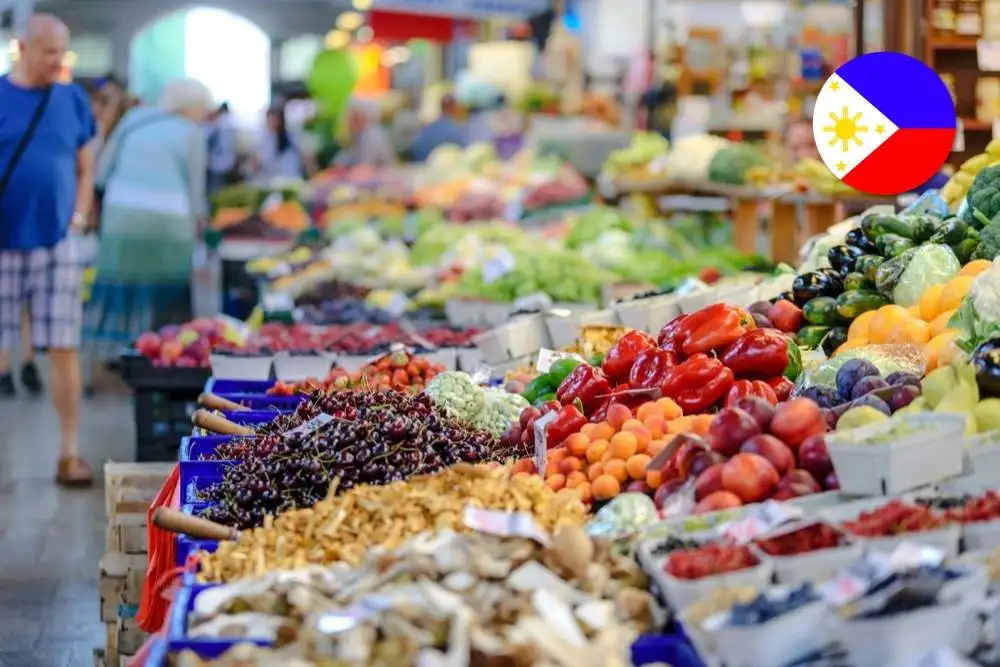June has marked the start of the rainy season in the Philippines, thus, concerns about food contamination and food safety have become more pronounced than ever. Dr. Regina Barba, an infectious disease expert, shares with Daily Tribune on the importance of maintaining food hygiene during the season.
The Combination of Moisture and Contamination
It is very easy for the rainy season to create conditions conducive to food contamination. Dr Barba emphasised that the damp environment allows mould, fungi, and bacteria to thrive on surfaces, especially on fruits and vegetables.
“All vegetables and fruits can get contaminated immediately and consuming such contaminated items can result in gastrointestinal infections and health hazards in humans.” She shared.
The increase in risk is not limited to production, she pointed out that food poisoning caused by bacteria such as E. coli and Salmonella are more prevalent during this time. These pathogens can lead to illnesses, which includes diarrhoea, dysentery, and cholera.
The Centers for Disease Control and Prevention (CDC) echoes this, noting that food-borne illnesses are a public health concern globally, with wet conditions amplifying this problem.
The Dangers of Street Food
Street food is a beloved staple in Philippines and around South East Asia, but it can become a health hazard, more so during the rainy season. Dr. Barba advised the public to be cautious about consuming street food, especially pre-cut fruit and fried items.
“Most types of street foods are generally prepared in open areas,” she explained.
“The lack of food hygiene among many street food vendors can lead to food-borne illnesses, particularly when rainwater contaminates the food.”
Watch: Video by PIA Western Mindanao
Similarly, the CDC advises against eating foods prepared in unsanitary conditions. During the rainy season, the risk is even greater as wet conditions can facilitate the spread of harmful microorganisms.
Maintaining a Clean Kitchen
When it comes to preparing your own food at home, Dr Barba stresses the importance of maintaining a clean kitchen. It is as important “as cooking using cleaned utensils and equipment”.
She recommends washing and sanitising all kitchen surfaces and equipment with disinfectant before and after food preparation. Clean kitchen floors with hot water and disinfectant to eliminate any pathogens present.
Tips to Avoid Food Contamination
Dr. Barba offered some practical advice for minimising the risk of food contamination during the season. Take these into consideration to reduce your personal risk of food contamination and food poisoning.
- Consume fruits as soon as they are cut
- Consume fruit juices immediately when fresh
This highly reduces the time the food is exposed to bacteria. This also means that there is less time they can multiply on the exposed surfaces.
- Dry fruits properly after washing them
- Store fruits in paper bags with separate compartments in the refrigerator.
This prevents cross-contamination and keeps food fresher for longer.
The CDC also advises ensuring that perishable items are stored at appropriate temperatures. Keeping the refrigerator at or below 40°F (4°C) and the freezer at 0°F (-18°C) helps slow bacterial growth. This is an especially important step in maintaining food safety during the wet season.
Proper food hygiene is important year round, but they are even more important during the rainy season where contamination risks are amplified. By maintaining hygienic habits in food preparation and consumption, you can help reduce food contamination and prevent the spread of food-borne illness.

